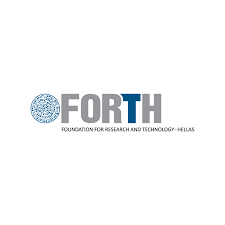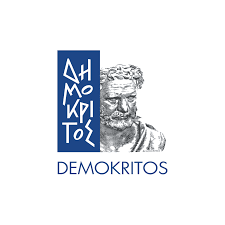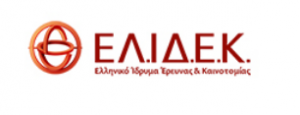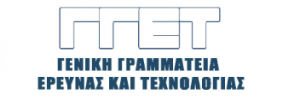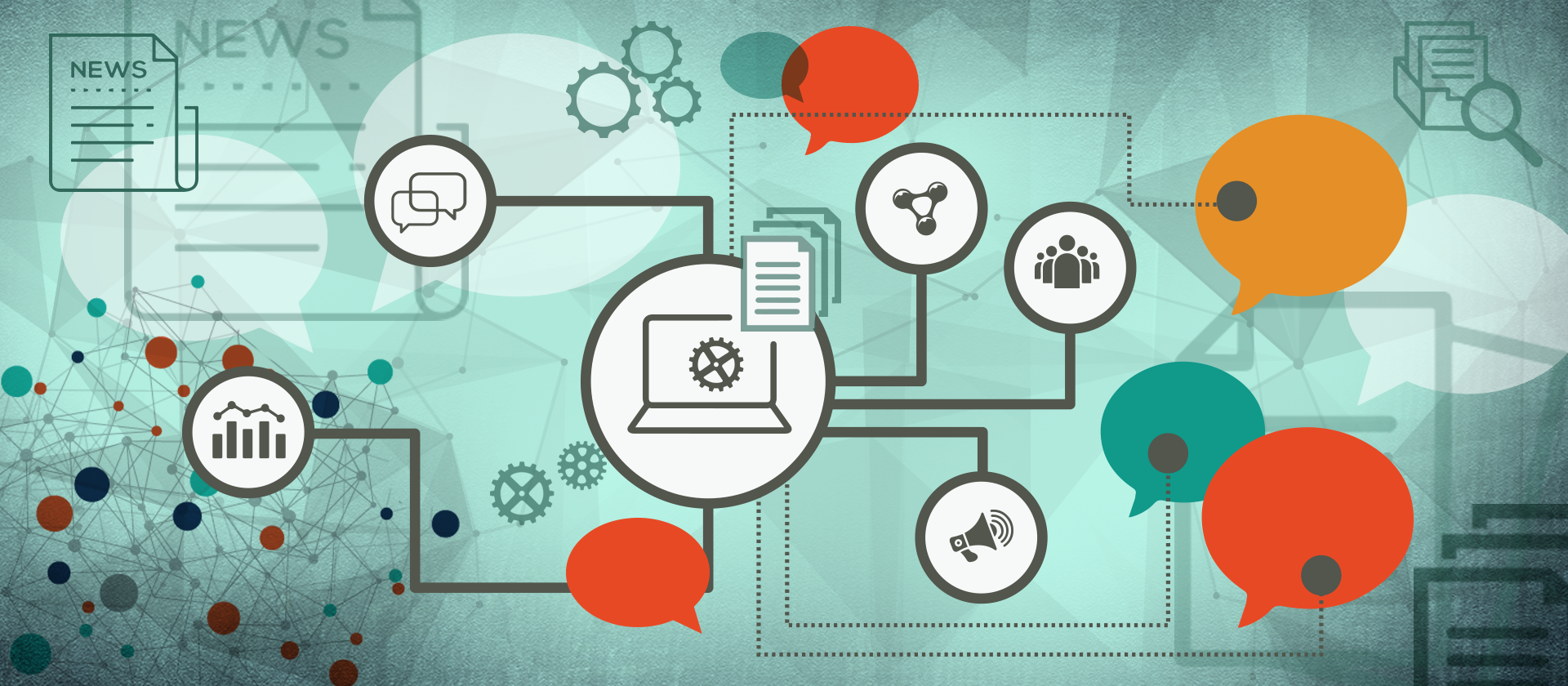

Our Features
These features represent software solutions that DebateLab project will develop and deliver as services.
Annotation of News Feeds
The project will be able to provide automated or semi-automated annotation of news feeds.
Exploration, Retrieval, Summarization
The project will be able to provide exploration, retrieval and summarization of arguments and opinions based on article processing.
Argument & Justification Mining
The project will be able to provide argument and justification mining based on linked argument processing.
Article Recommendation
The project will be able to provide article recommendations based on the argument analysis.
Enhance Debate Portals
The project will be able to enhance debate portals in order to involve the crowd participation.
Identify Opinion Trends & Norms
The project will be able to analyze online debates in order to identify opinion trends and norms among diverse audiences.
What DebateLab is?
DebateLab intends to pioneer research towards developing the theoretical machinery that can be used across diverse domains for representing, mining and reasoning with online arguments, and simultaneously develop and deliver software solutions (tools and services) supporting the uptake and initial exploitation of the related technologies. This research will pave the way for a new Web paradigm, a modern agora, where the different types of arguments and human deliberation can be amenable to machine-interpretable representation and algorithmic processing.
Cooperating Institutions
Funding
Our Team
These people are the team members of DebateLab ensuring the success of the project

Dimitris Plexousakis
Project Manager
dp@ics.forth.gr

Giorgos Flouris
Scientific Coordinator
fgeo@ics.forth.gr
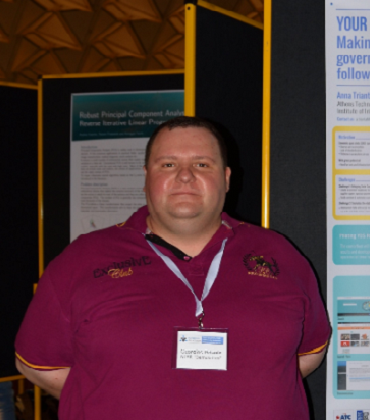
Georgios Petasis
Scientific Researcher
petasis@iit.demokritos.gr

Theodore Patkos
Scientific Researcher
patkos@ics.forth.gr
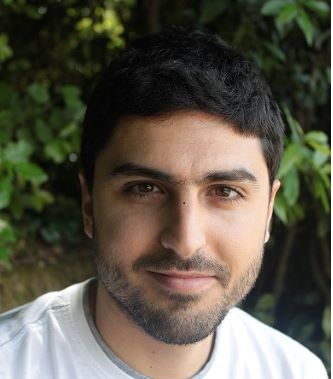
Vasilis Efthymiou
Scientific Researcher
vasilis.efthymiou@ibm.com
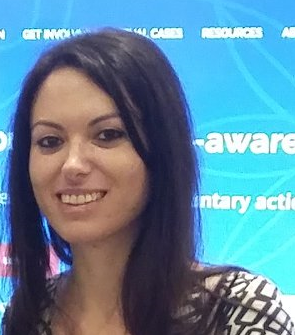
Dimitra Zografistou
Scientific Researcher
dzografistou@gmail.com

Katerina Papantoniou
PHD Researcher
papanton@ics.forth.gr
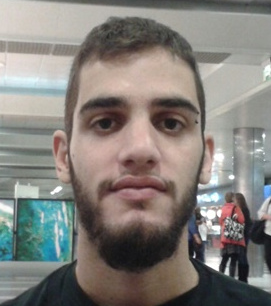
Nikiforos Pittaras
PHD Researcher
pittarasnikif@iit.demokritos.gr
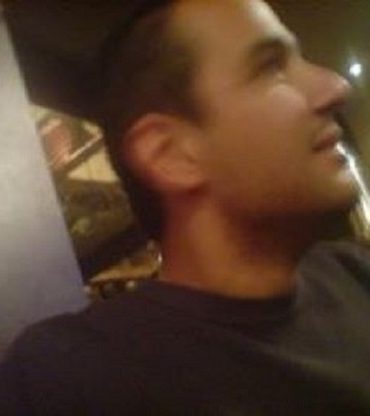
Elias Tzortzakakis
R&D Developer
tzortzak@ics.forth.gr

Giannis Roussakis
R&D Developer
rousakis@ics.forth.gr

Elisjana Ymeralli
R&D Developer
ymeralli@ics.forth.gr
News & Updates
The latest news & updates related to the DebateLab project
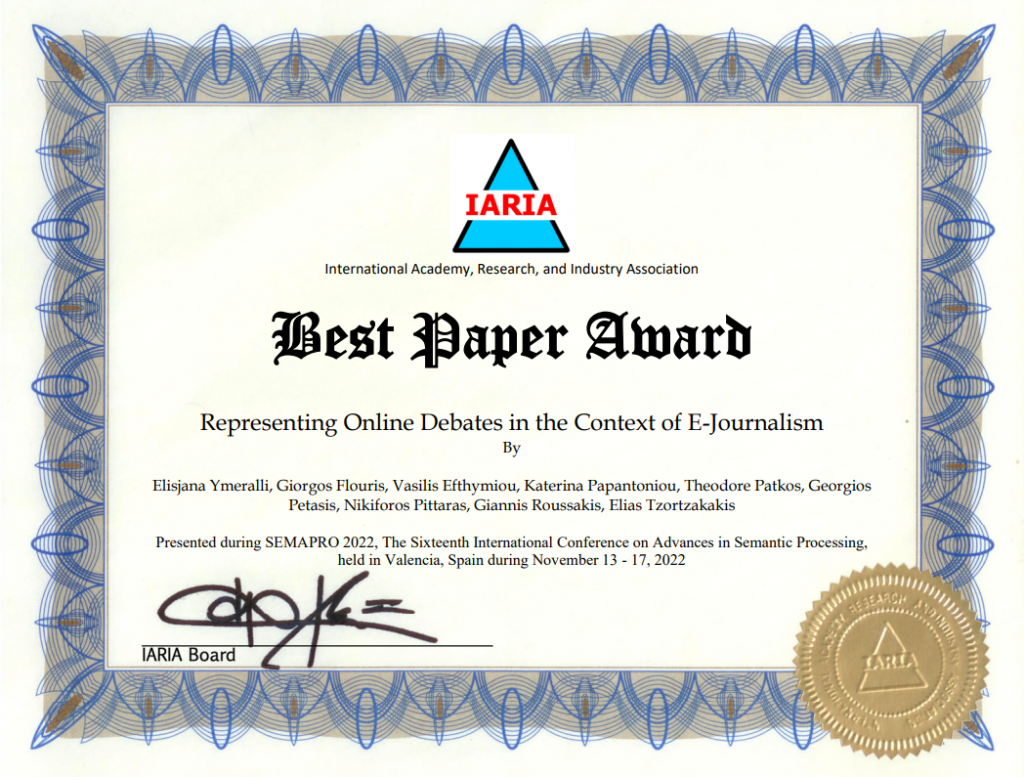
The work entitled “Representing Online Debates in the Context of E-Journalism” that has taken place in the context of DebateLab project has been awarded with the Best Paper Award at the SEMAPRO 2022, The Sixteenth International Conference on Advances in Semantic Processing conference held in Spain in November.
For more information on paper see here.
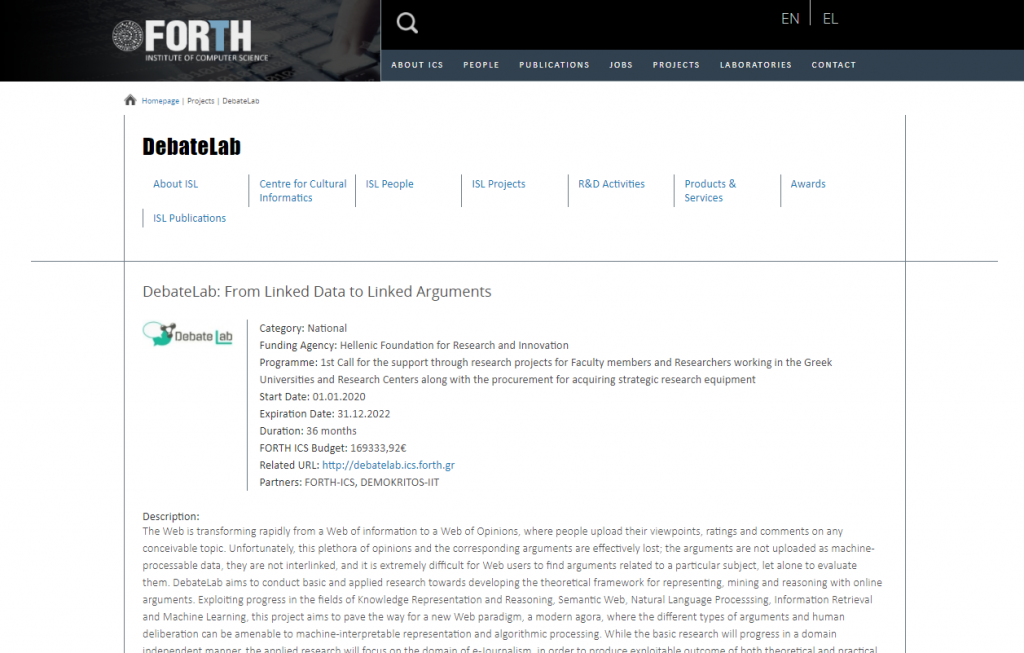
The DebateLab project is conducting research towards representing, mining and reasoning with online arguments. The goal of DebateLab is to offer a suite of tools and services that will assist both the work of the professional journalist in accomplishing everyday tasks (e.g., writing, archiving, retrieving articles), as well as the activity of the ordinary Web user (reader) who wishes to be well-informed about topics or entities of interest (e.g., persons, locations, events).
DebateLab is conducted at FORTH-ICS in collaboration with SKEL-NCSR “Demokritos”, by a balanced consortium comprising senior, principal and postdoctoral researchers, PhD students and a software engineer.
For more information, visit the FORTH website here.
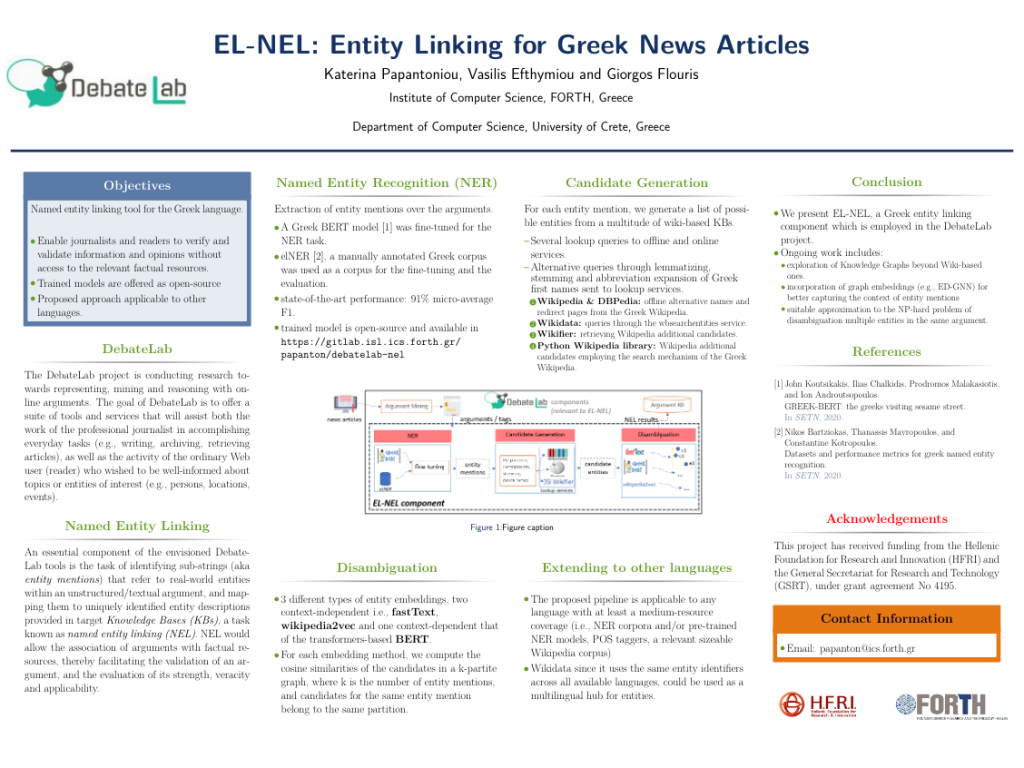
This poster presents the work that has be done in the context of the DebateLab project, by briefly describing the pipeline of the EL-NEL implementation for non-English language, the modular architecture and alternative options for each component of EL-NEL. The aim of this work is to present the process followed for identifying sub-strings (entity-mentions) within an unstructured textual argument and then mapping them to uiniquely identified entity descriptions provided in the Knowledge Bases (KBs).
For more information, see the paper here.
A demo is also available, here.
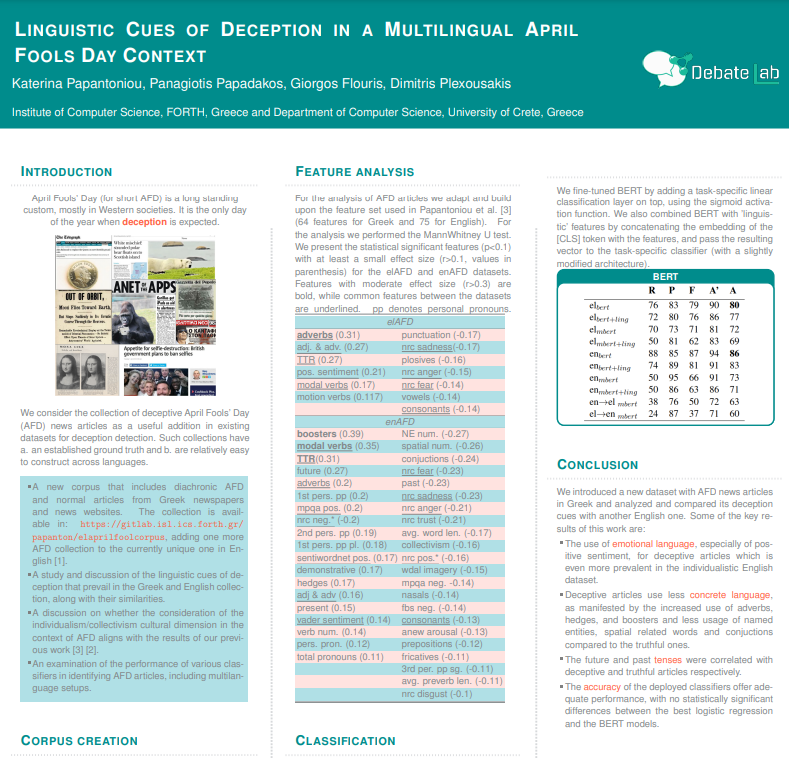
This work considers the collection of deceptive April Fools’ Day (AFD)
news articles as a useful addition in existing datasets for deception detection tasks. Such collections have an established ground truth and are relatively easy to construct across languages. As a result, we introduce a corpus that includes diachronic AFD and normal articles from Greek newspapers and news websites. On top of that, we build a rich linguistic feature set, and analyze and compare its deception cues with the only AFD collection currently available, which is in English. Following a current research thread, we also discuss the individualism/collctivism dimension in deception with respect to these two datasets. We also build classifiers by testing various monolingual and crosslingual settings. The results showcase that AFD datasets can be helpful in deception detection studies, and are in alignment with the observations of other deception detection works.
For more information, see the paper here.
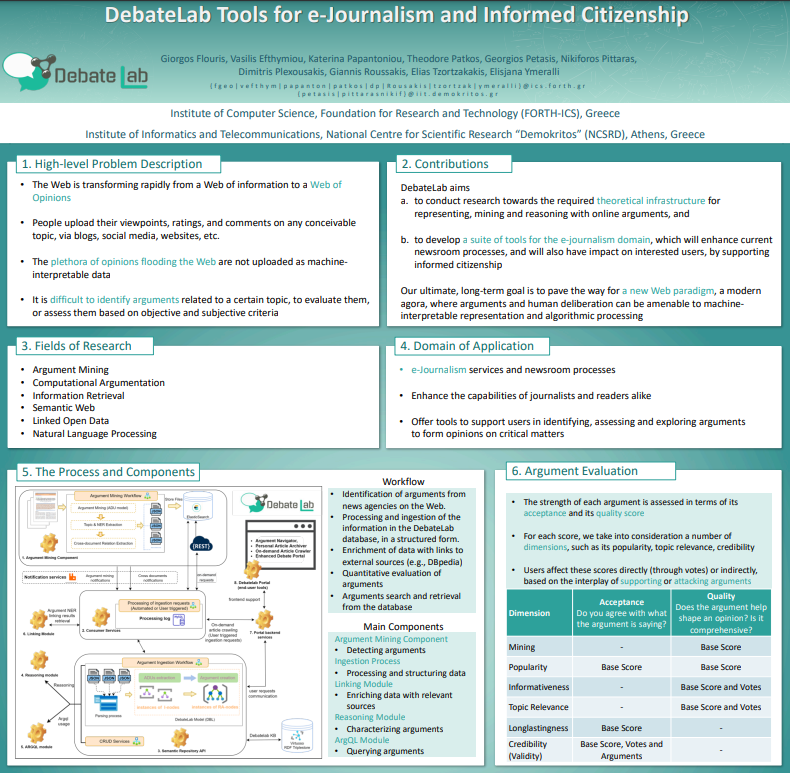
This work describes DebateLab, a project which aims to conduct research towards developing the theoretical infrastructure for mining, representing and reasoning with arguments found online, while delivering a suite of tools and services supporting the uptake of the related technologies. DebateLab will pave the way for a new Web paradigm, where the different types of arguments and human deliberation will be amenable to algorithmic processing and machine interpretable representation. Towards this, DebateLab analyzes articles with argumentative content to provide tools that will be useful for the professional journalist, but also for users who want to be better informed regarding public debates.
For more information, see the paper here.
Belief Revision and Argumentation Approaches to Support Commonsense Reasoning Allowing artificial agents to model and reason about commonsense phenomena is one of the major problems of AI research since its conception. In this talk, Giorgos Flouris presents recent (and partly unpublished) research that has been performed in the Symbolic AI group of FORTH-ICS, which connects the fields of commonsense reasoning with the fields of belief revision and computational argumentation.
The presented work has been published in Commonsense-17, AMAI and IJCAI-21.
This research was supported by the Hellenic Foundation for Research and Innovation (H.F.R.I.) under the “1st Call for H.F.R.I. Research Projects to support Faculty Members and Researchers and the procurement of high-cost research equipment” grant (Project Number: 4195).

